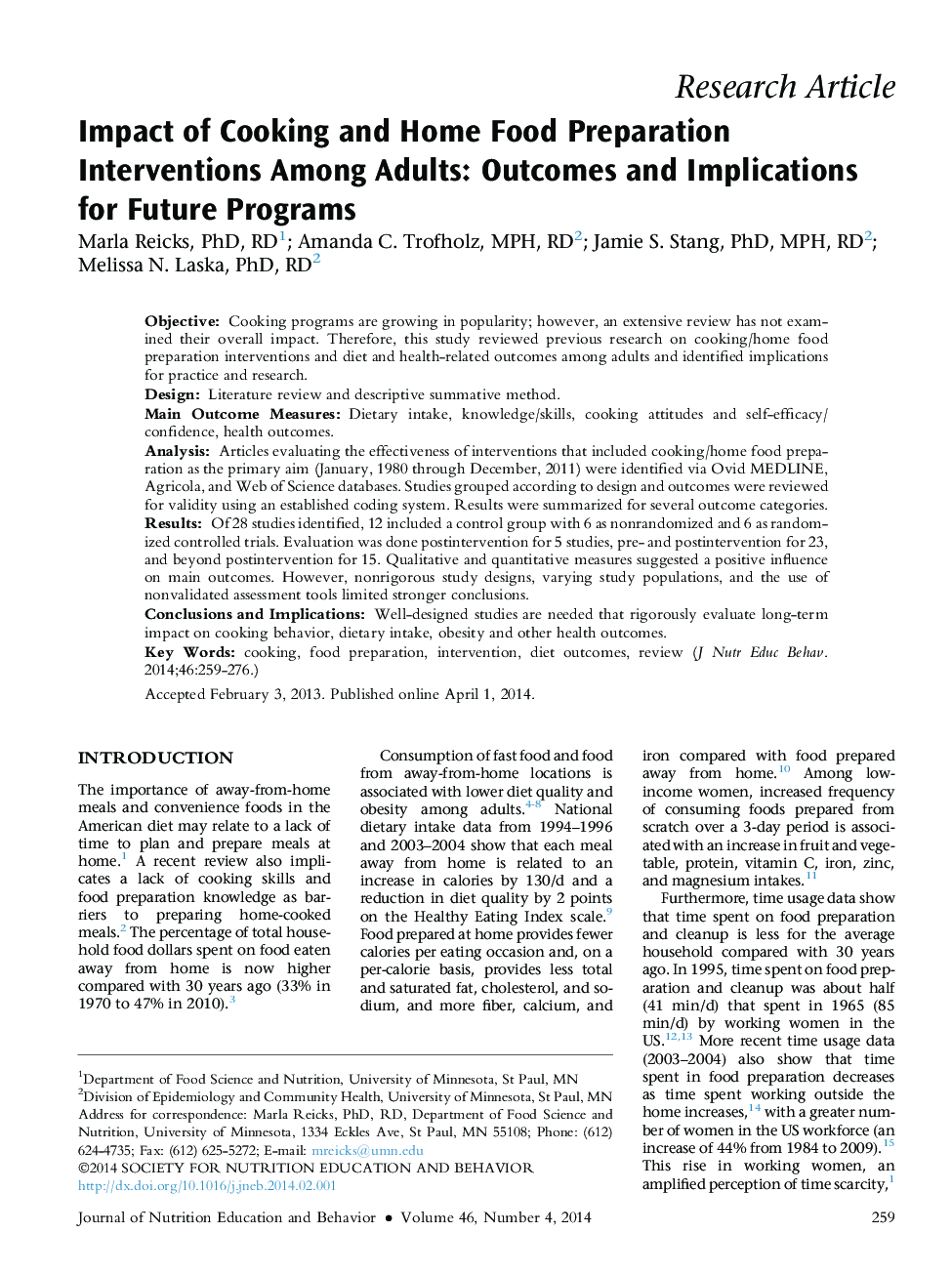| کد مقاله | کد نشریه | سال انتشار | مقاله انگلیسی | نسخه تمام متن |
|---|---|---|---|---|
| 361130 | 620587 | 2014 | 18 صفحه PDF | دانلود رایگان |
ObjectiveCooking programs are growing in popularity; however, an extensive review has not examined their overall impact. Therefore, this study reviewed previous research on cooking/home food preparation interventions and diet and health-related outcomes among adults and identified implications for practice and research.DesignLiterature review and descriptive summative method.Main Outcome MeasuresDietary intake, knowledge/skills, cooking attitudes and self-efficacy/confidence, health outcomes.AnalysisArticles evaluating the effectiveness of interventions that included cooking/home food preparation as the primary aim (January, 1980 through December, 2011) were identified via Ovid MEDLINE, Agricola, and Web of Science databases. Studies grouped according to design and outcomes were reviewed for validity using an established coding system. Results were summarized for several outcome categories.ResultsOf 28 studies identified, 12 included a control group with 6 as nonrandomized and 6 as randomized controlled trials. Evaluation was done postintervention for 5 studies, pre- and postintervention for 23, and beyond postintervention for 15. Qualitative and quantitative measures suggested a positive influence on main outcomes. However, nonrigorous study designs, varying study populations, and the use of nonvalidated assessment tools limited stronger conclusions.Conclusions and ImplicationsWell-designed studies are needed that rigorously evaluate long-term impact on cooking behavior, dietary intake, obesity and other health outcomes.
Journal: Journal of Nutrition Education and Behavior - Volume 46, Issue 4, July–August 2014, Pages 259–276
